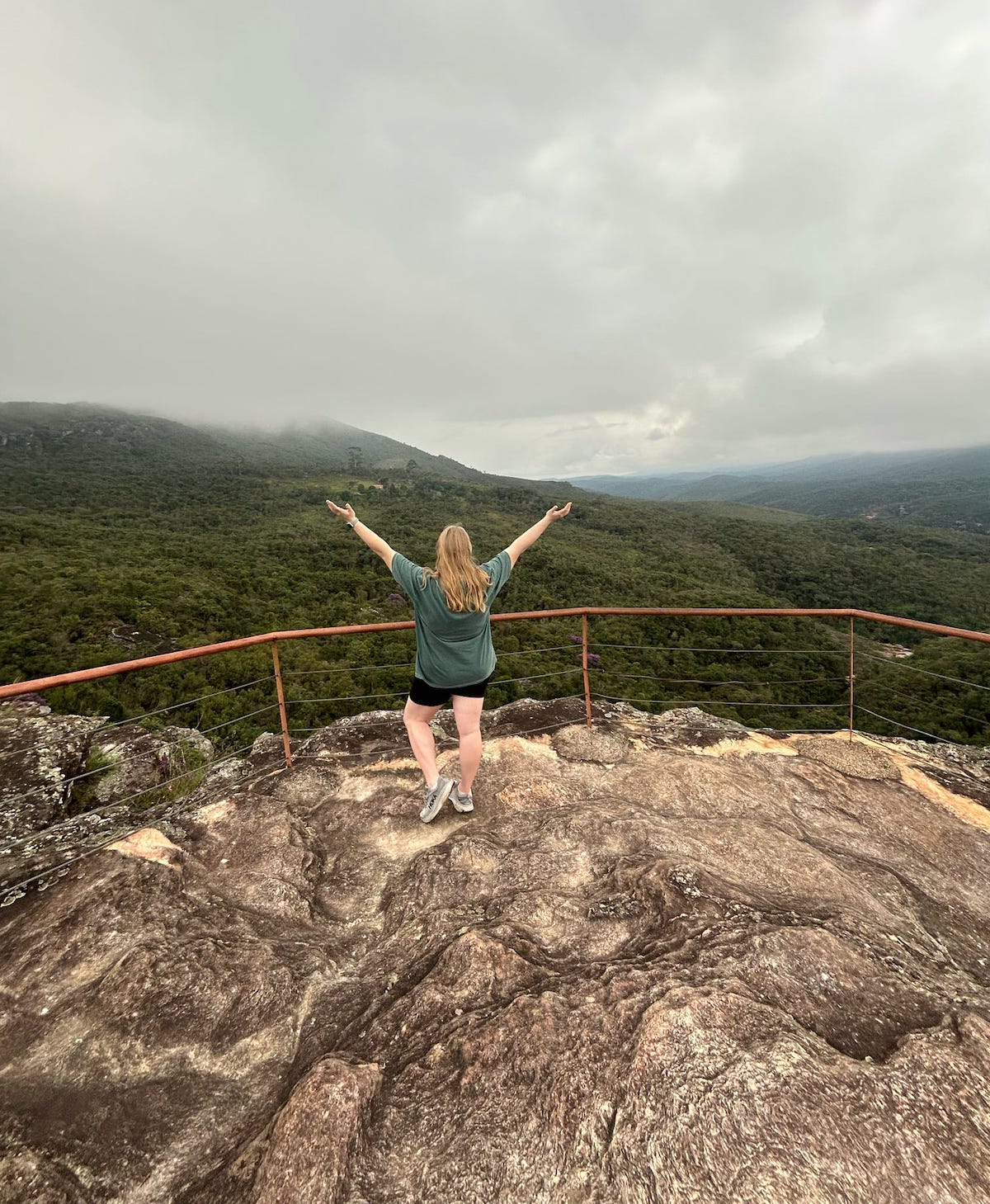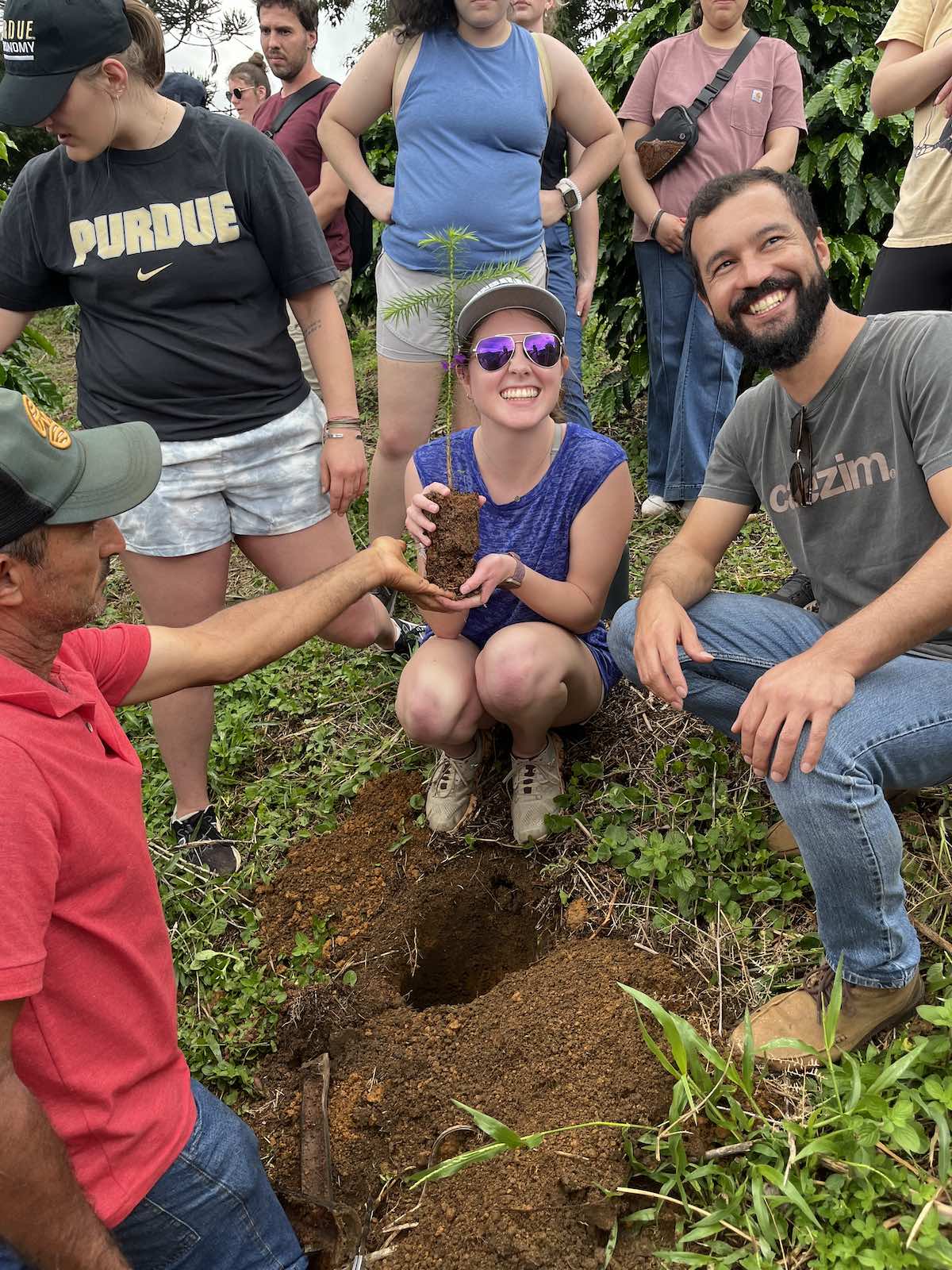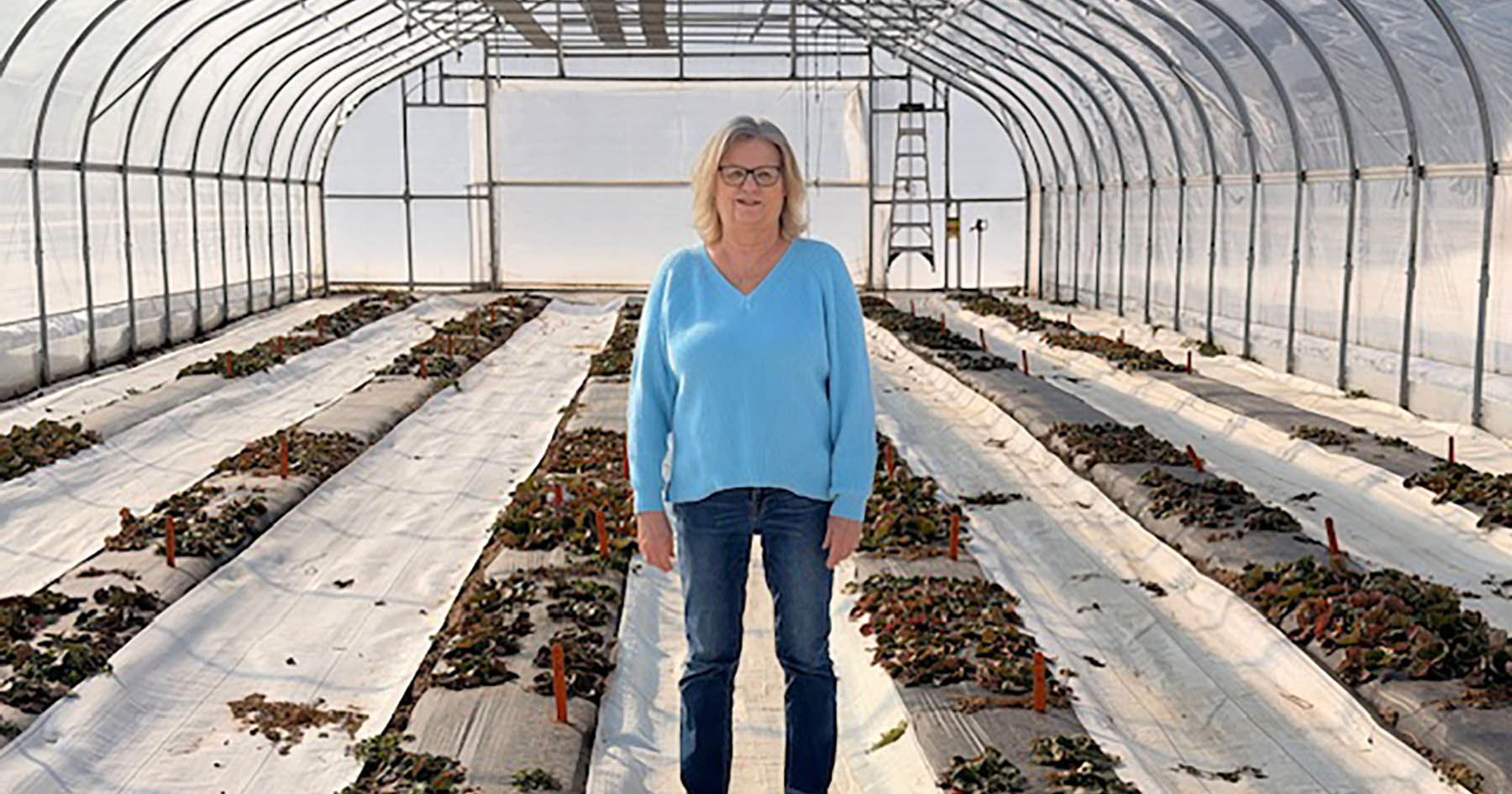From curiosity to connection: Kylie Bedel’s study abroad adventure in Brazil
Ag Boilers Abroad
Planning your next trip abroad? Learn about key strategies and experiences through the adventures of students and faculty in the Ag Boilers Abroad series. With over 400 programs in 60 countries on six continents, ranging from a week to a semester, Purdue College of Agriculture students have an abundance of study-abroad opportunities.
For Kylie Bedel, an agribusiness management and animal sciences student from Evansville, Indiana, what began as a casual comment turned into an unforgettable international experience. This past spring break, Kylie traveled to Brazil with a group of fellow students, immersing herself in a culture, climate and agricultural landscape unlike anything she’d ever experienced.
Kylie’s interest in studying abroad was sparked early in her college career.
“My initial trip freshman year started with a natural curiosity about traveling abroad,” she said. “I also learned from Purdue grads about their wonderful adventures and how studying abroad helped their careers.”

Kylie Bedel overlooking the nature persevere/city park in Ouro Puerto
Her first trip took her to Ireland, a trip that checked all her boxes: English-speaking country, short-term and well-timed with her academic schedule. She later joined a trip to Germany, Switzerland and Austria — a perfect opportunity to travel with advisors she already knew and trusted before starting a summer internship.
But Brazil was different. The idea was born from a conversation.
“I mentioned to Holly Shaver, study abroad specialist in the International Programs in Agriculture, that Brazil would be a great spring break location—it’s warm this time of year and their agriculture impacts our markets and economics. I never thought it would actually become a real trip. When I saw the flyer in the fall semester, I knew I had to go on the trip.”
Unlike her previous trips, Kylie didn’t know what to expect from Brazil.
Before my first study abroad, I had never flown or left the country,” she said. “By my second trip, I was a bit more prepared but still worried about the language barrier. For Brazil, I had no idea what to expect — everything was a surprise: the language, the landscape and the people.”
A typical day in Brazil was packed with activity and discovery. The group would start their day with breakfast at the hotel, followed by tours of farms, cities and natural areas.
“We’d have lunch, then head to another location in the afternoon before returning to the hotel to freshen up and go out to eat dinner at a local restaurant,” Kylie said. “These visits were fun, educational and involved a lot of walking. We definitely got our exercise!”
One of Kylie’s favorite experiences was a trip to a coffee farm nestled in the mountains.
“We all crammed into a wagon pulled by a tractor — about 25 people standing, holding onto each other, bouncing around as we made our way up a narrow, winding road,” she said. “We were completely surrounded by coffee plants.”
At the top, the group was welcomed by a local farmer who asked them to help plant a tree.

Group member Ruby with coffee farmers planting the tree within the coffee field
“He explained the tree would provide shade to protect the coffee plants from excessive sun and help purify the air. It symbolized a global initiative to support farms and the environment,” Kylie recalled. “I helped dig the hole, and another student placed the tree inside. It was such a meaningful moment.”
The descent was just as adventurous, ducking under branches and stopping to try mangoes and local fruits picked straight from the trees. Later, the group participated in a coffee tasting, sampling various blends grown in the region.
Some of the most impactful cultural moments came from the group’s interactions with local residents.
“As a tall, blonde woman, I stood out a lot more than I was used to. We got stared at frequently, and the language barrier between English and Portuguese was very real. It was a completely different experience from my other trips.”
But it wasn’t just the culture that stood out. The agriculture also left a lasting impression.
“In the regions of Brazil we visited, they grow specialty crops like coffee on the sides of mountains. It’s so different from Indiana,” she said. “We didn’t get to visit the grain-producing regions, but seeing the diversity in Brazil’s agricultural systems was eye-opening.”
Now is the time to study abroad
Perhaps most memorable was the bond formed within the group. After experiencing a rough start to their travel, the students quickly learned to rely on one another and share the journey.
“We really connected. The group made the trip fun, memorable and just amazing overall.”
For Kylie, studying abroad has become more than a curiosity. It’s a meaningful part of her college experience. From Ireland to Brazil, each trip has offered a new perspective, new friendships and a deeper understanding of agriculture on a global scale.
“I would absolutely recommend studying abroad,” she said. “You’ll grow academically, culturally and personally in ways you never expect.”
Are you interested in traveling on a study abroad trip? Check out the Purdue Agriculture Study Abroad Page!
How to prepare for your study abroad program?
- Research cultural aspects of the country you’re traveling to
- Research the weather at the time of year you’re traveling
- Pack light — try to bring only a carry-on
- Talk to peers who have already embarked on a study abroad or traveled abroad






